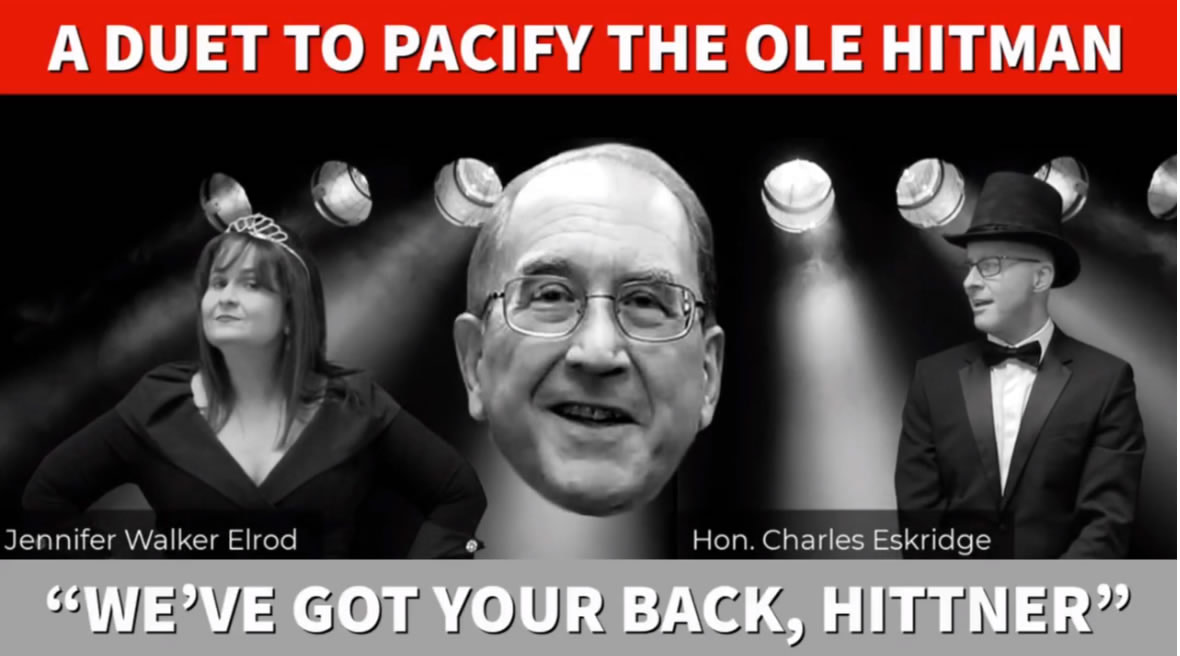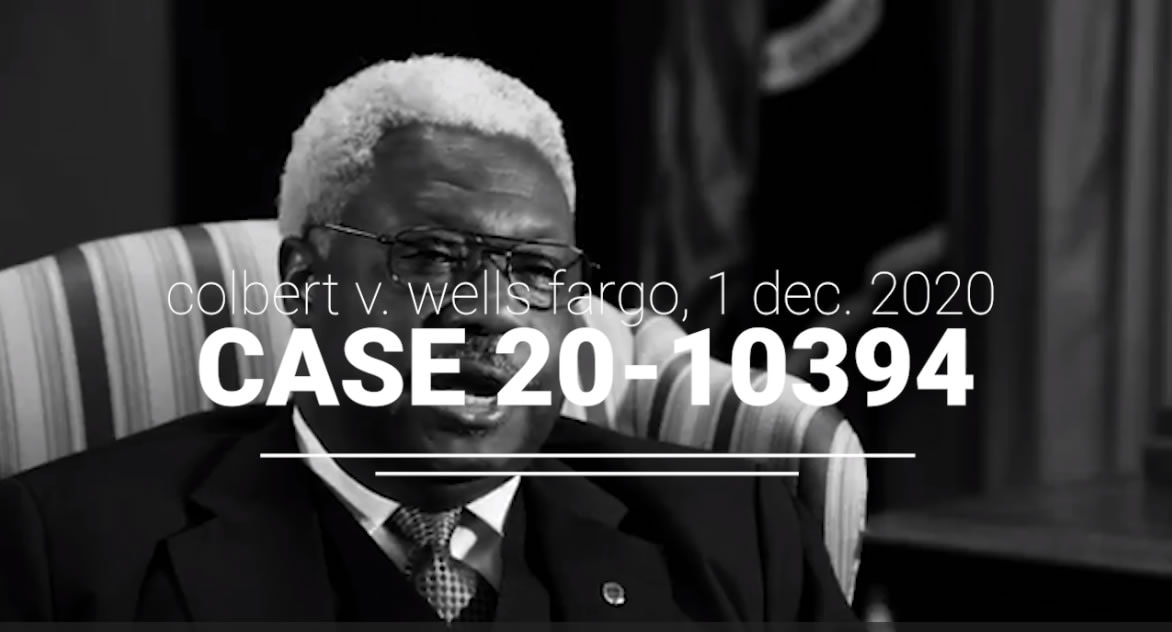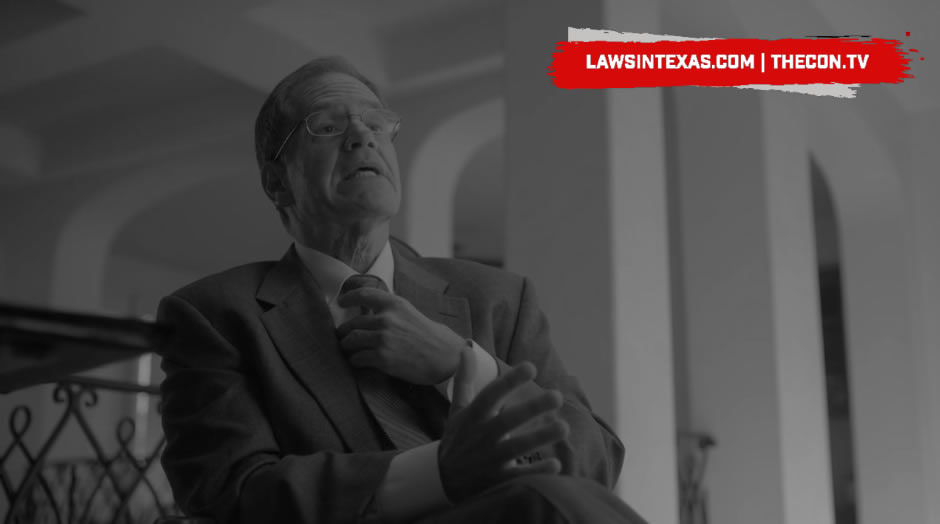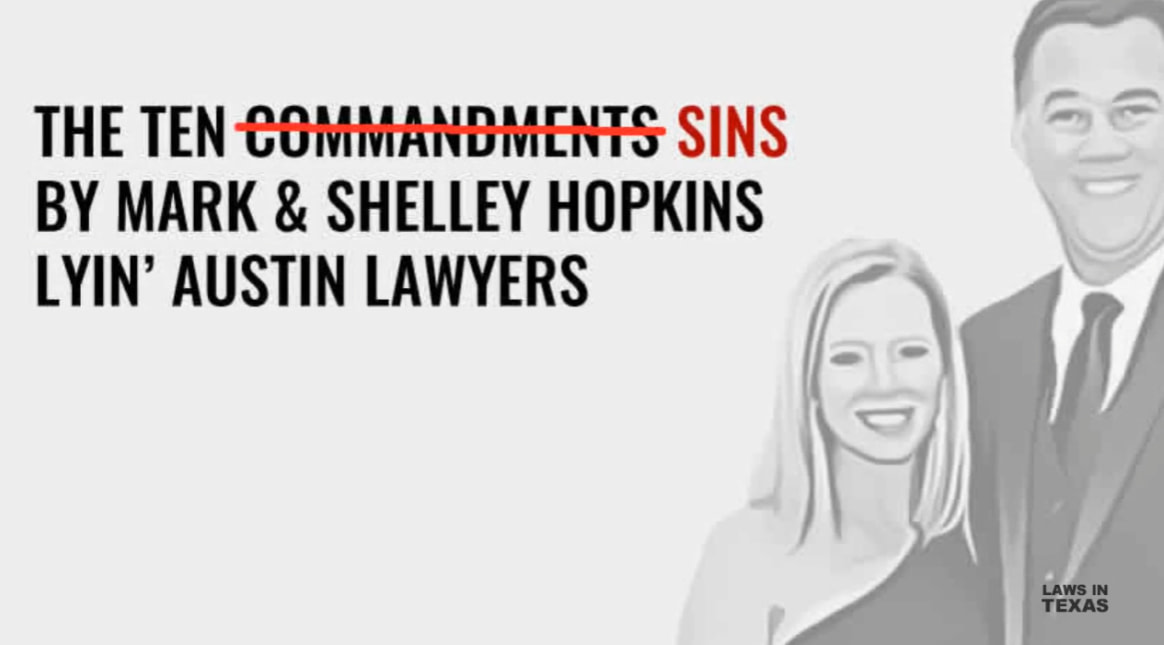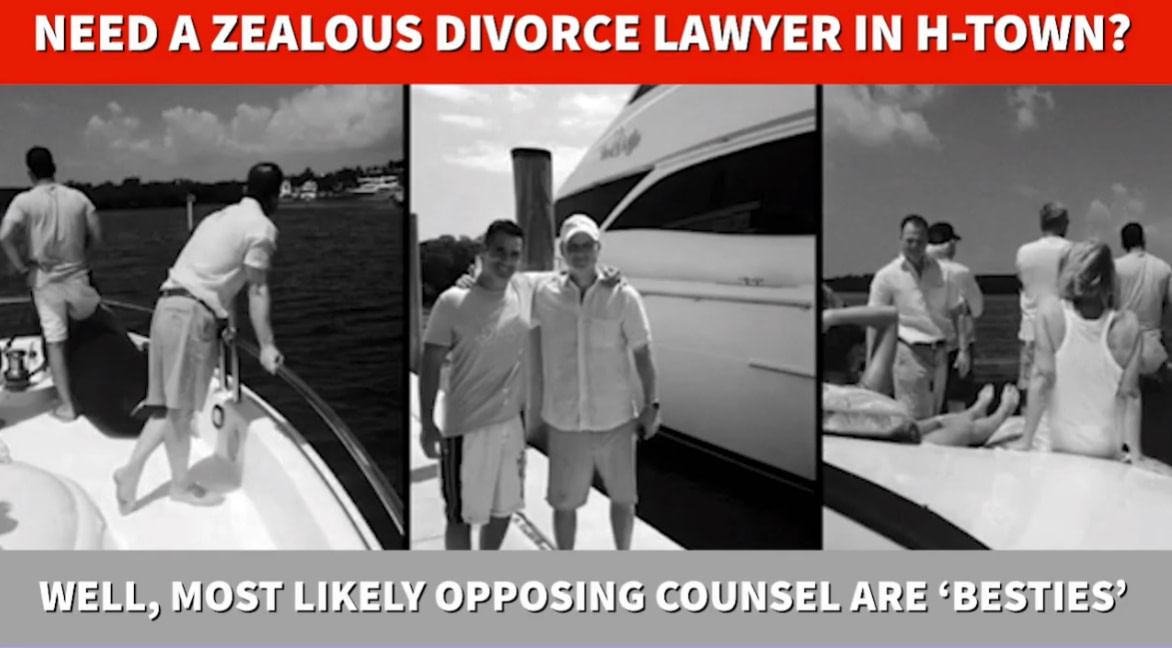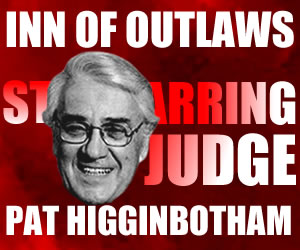Smith v. Hittner
(4:21-cv-03079)
District Court, S.D. Texas
SEP 17, 2021 | REPUBLISHED BY LIT: OCT 2, 2021
Memorandum and Recommendation to Dismiss, with prejudice.
Judge Hittner’s DOJ counsel were not approved as at beginning of Dec. 2021.
MEMORANDUM AND RECOMMENDATION
DEC 27, 2021
Pending before the Court1 is Defendant Judge David Hittner’s Motion to Dismiss.2 Based on a thorough review of the motion, arguments, and relevant law, the Court RECOMMENDS that Defendant Judge Hittner’s Motion to Dismiss be GRANTED and the case against him be DISMISSED WITH PREJUDICE.
I. BACKGROUND
This case stems from a prior mortgage foreclosure case filed by Plaintiff in the Southern District of Texas on May 4, 2019 against Defendant MTGLQ Investors, LP (“MTGLQ”).3 The prior case, Civil Action No. H-19-1888, was assigned to Defendant Judge Hittner.4 On August 23, 2019, Defendant Judge Hittner granted Defendant MTGLQ’s motion to dismiss for failure to state
a claim.5 On September 17, 2019, Plaintiff appealed Defendant Judge Hittner’s decision.6 On August 17, 2021, the Fifth Circuit affirmed Defendant Judge Hittner’s decision.7 On September 17, 2021, Plaintiff filed the instant case against Defendant Judge Hittner and Defendant MTGLQ, alleging civil rights violations.8
II. LEGAL STANDARD
A complaint may be dismissed if the Court lacks subject matter jurisdiction over an action. Fed. R. Civ. P. 12(b)(1). “A case is properly dismissed for lack of subject matter jurisdiction when the court lacks the statutory or constitutional power to adjudicate the case.” Home Builders Ass’n of Mississippi, Inc. v. City of Madison, Miss., 143 F.3d 1006, 1010 (5th Cir. 1998) (quoting Nowak V. Ironworkers Local 6 Pension Fund, 81 F.3d 1182, 1187 (2d Cir. 1996)). In evaluating subject matter jurisdiction on a motion to dismiss, the Court may consider “(1) the complaint alone, (2) the complaint supplemented by undisputed facts evidenced in the record, or (3) the complaint supplemented by undisputed facts plus the court’s resolution of disputed facts.” Tewari De-Ox Sys., Inc. v. Mountain States/Rosen Liab. Corp., 757 F.3d 481, 483 (5th Cir. 2014).
III. ANALYSIS
Plaintiff’s claims against Defendant Judge Hittner are barred by judicial immunity. “Judges are afforded absolute immunity when they perform a normal judicial function unless they are acting in the clear absence of all jurisdiction.” Duke v. Wallace, No. 4:19-CV-3353, 2020 WL 1650768, at *1 (S.D. Tex. Mar. 26, 2020) (citing Stump v. Sparkman, 435 U.S. 349, 356–57, 360
(1978)). “Like other forms of official immunity, judicial immunity is an immunity from suit, not just from ultimate assessment of damages.” Mireles v. Waco, 502 U.S. 9, 11 (1991). This immunity is not overcome by allegations of bad faith or malice. Id.
It is evident from Plaintiff’s complaint that his allegations against Defendant Judge Hittner all pertain to judicial actions that he took in his judicial capacity while presiding over the prior lawsuit, and that his actions were not performed in clear absence of all jurisdiction. See Mitchell v. McBryde, 944 F.2d 229, 230 (1991). Accordingly, Defendant Judge Hittner has absolute immunity and his Motion to Dismiss should be granted. See also Santos v. Rosenthal, No. CV 4:09-904, 2009 WL 10714411, at *1 (S.D. Tex. June 3, 2009); Duke, 2020 WL 1650768, at *1.
IV. CONCLUSION
Based on the foregoing, the Court RECOMMENDS that Defendant Judge Hittner’s Motion to Dismiss be GRANTED and the case against him be DISMISSED WITH PREJUDICE.
The Clerk shall send copies of this Memorandum and Recommendation to the respective parties who have fourteen days from the receipt thereof to file written objections thereto pursuant to Federal Rule of Civil Procedure 72(b) and General Order 2002-13. Failure to file written objections within the time period mentioned shall bar an aggrieved party from attacking the factual findings and legal conclusions on appeal.
The original of any written objections shall be filed with the United States District Clerk electronically. Copies of such objections shall be mailed to opposing parties and to the chambers of the Undersigned, 515 Rusk, Suite 7019, Houston, Texas 77002.
SIGNED in Houston, Texas on December 27, 2021.
Sam S. Sheldon
United States Magistrate Judge
Smith’s Response to the Motion to Dismiss by DOJ (Hittner’s Lawyers)
DEC 20, 2021 | REPUBLISHED BY LIT:DEC 27, 2021
Hittner’s MTD
DEC 20, 2021 | REPUBLISHED BY LIT: DEC 27, 2021
It didn’t take the 60-days after all, the gov’s motion to dismiss on behalf of Judge Hittner was filed on 14 Dec., 2021, 12 days after requesting a 60-day continuance.
DEFENDANT JUDGE HITTNER’S MOTION TO DISMISS PLAINTIFF’S COMPLAINT
Defendant, Judge David Hittner (hereinafter “Defendant”) by and through Jennifer B. Lowery, Acting United States Attorney for the Southern District of Texas, and Alexander N. DerGarabedian, Assistant United States Attorney, moves the Court to dismiss Plaintiff, Wayne Smith’s complaint. In support of this Motion to Dismiss, Defendant, states as follows:
FACTS AND PROCEDURAL HISTORY
Plaintiff, a pro se litigant, was a party (mortgagee) in a residential foreclosure case. On or about May 24, 2019, Plaintiff filed a lawsuit, Civil Action No. H-19-1888 (USDC No. 4:19-cv- 1888) , against MTGLQ Investors, LP (hereinafter MTGLQ).
In that case, MTGLQ filed a motion to dismiss on July 25, 2019, for failure to state a claim.
On August 23, 2019, Judge Hittner, Defendant here, granted MTGLQ’s motion to dismiss.1 Thereafter, Plaintiff appealed Judge Hittner’s decision on September 17, 2019 and the Appellate Court affirmed on August 17, 2021.
As a result, Plaintiff filed the instant suit against Judge David Hittner on September 17,
2021 alleging violation of Civil Rights for alleged acts committed within Defendant’s judicial jurisdiction.
LEGAL STANDARD
I. Federal Rule of Civil Procedure 12(b)(1) – Lack of Subject Matter Jurisdiction
Dismissal under Federal Rule of Civil Procedure 12(b)(1) is appropriate if the Court lacks subject matter jurisdiction over the claim. Whitmore v. Arkansas, 495 U.S. 149, 154–55 (1990).
Once the defendant objects to a lack of subject matter jurisdiction, a plaintiff bears the burden of establishing that the court has subject matter jurisdiction. Lujan v. Defenders of Wildlife, 504 U.S. 555, 561 (1992).
To survive a motion to dismiss under Rule 12(b)(1), a plaintiff must prove that the Court has jurisdiction to hear the case. Kokkonen v. Guardian Life Ins. Co. of America, 511 U.S. 375, 377 (1994) (“Federal courts are of limited jurisdiction It is to be presumed that a cause lies outside this limited jurisdiction, and the burden of establishing the contrary rests on the party asserting jurisdiction.”).
A motion to dismiss under Rule 12(b)(1) challenges the subject-matter jurisdiction of the court. Ramming v. U. S., 281 F.3d 158, 161 (5th Cir. 2001).
In evaluating a motion to dismiss under Rule 12(b)(1) the court may consider “(1) the complaint alone; (2) the complaint supplemented by undisputed facts evidenced in the record; or (3) the complaint supplemented by undisputed facts plus the court’s resolution of disputed facts.” Spotts v. United States, 613 F.3d 559, 565 (5th Cir. 2010) (quotation marks and citation omitted).
II. JUDICIAL IMMUNITY
Judicial immunity is a complete immunity from suit and not simply protection from ultimate assessment of damages. Mireles v. Waco, 502 U.S. 9, 11 (1991) (per curiam). Judges are protected by absolute immunity for judicial acts except when they act in the clear absence of jurisdiction.
The Supreme Court has consistently adhered to that rule, observing that a few doctrines were more solidly established at common law than the immunity of judges from liability for damages for acts committed within their judicial jurisdiction.
Cleavinger v. Saxner, 474 U.S. at 199 (quoting Pierson v. Ray, 386 U.S. at 553-54); see also Dennis v. Sparks, 449 U.S. 24, 27 (1980).
The Court summarized the breadth and nature of the immunity in Cleavinger v. Saxner, 474 U.S. at 199-200 (citations omitted):
Such immunity applies Ahowever erroneous the act may have been, and however injurious in its consequences [the judicial act] may have proved to the plaintiff.
* * *
Nor can this exemption of the judges from civil liability be affected by the motives with which their judicial acts are performed.
* * *
And in Stump v. Sparkman, 435 U.S. 349 (1978), the Court once again enunciated this principle, despite any Ainformality with which [the judge] proceeded, and despite any ex parte feature of the proceeding a judge will not be deprived of immunity because the action he took was in error, was done maliciously, or was in excess of his authority; rather, he will be subject to liability only when he has acted in the clear absence of all jurisdiction. Stump v. Sparkman, 435 U.S. at 356-57 (citation omitted).
Unfairness or injustice to a litigant resulting from application of the immunity cannot preclude it. Mireles v. Waco, 502 U.S. at 10.
Similarly, judicial immunity will not be defeated by allegations that a judge acted in conspiracy with private individuals who are not immune and who sought to bribe him, so long as the judge did not act in the absence of all jurisdiction with respect to the challenged conduct.
See Holloway v. Walker, 765 F.2d 517, 522-23 (5th Cir.), cert. denied, 474 U.S. 1037 (1985).
As these authorities demonstrate, absolute immunity from suit for alleged deprivation of rights enjoyed by judges is matchless in its protection of judicial power. McCray v. State of Maryland, 456 F.2d 1, 3 (4th Cir. 1972).
There are two requisites inherent in the Supreme Court’s formulation of absolute judicial immunity:
(1) that the challenged act be judicial in nature,
and
(2) that it not be done in the absence of all jurisdiction.
See Mireles v. Waco, 502 U.S. at 11-12.
With respect to the first requisite, judicial in nature, the Court has listed four factors to determine whether a judicial officer’s actions are judicial in nature:
1) whether the acts are a normal judicial function;
2) whether the acts occurred in a courtroom or other judicial space;
3) whether to the complained of acts relate to a case pending before the judicial officer;
and
4) whether the acts relate directly to an appearance before the judicial officer in his official capacity.
Malina v. Gonzales, 994 F.2d 1121, 1125 (5th Cir. 1993).
Furthermore, with respect to “absence of all jurisdiction” in the second aforementioned requisite above, a judge will not be deprived of immunity because the action he took was in error, was done maliciously, or was in excess of his authority, rather, he will be subject to liability only when he has acted in the clear absence of all jurisdiction.
Stump v. Sparkman, 435 U.S. 349, 356-57,98 S.Ct. 1099, 1105, 55 L.Ed.2d 331 (1978).
The factors determining whether a challenged act by a judge is a judicial one for purposes of immunity relate to the nature of the act itself, i.e., whether it is a function normally performed by a judge, and to the expectations of the parties, i.e., whether they dealt with the judge in his judicial capacity. Stump v. Sparkman, 435 U.S. at 362.
The inquiry thus goes to the nature and function of the act and not to the act itself. Mireles v. Waco, 502 U.S. at 12. If the focus were only on the challenged act itself, the purpose of judicial immunity could be frustrated by a finding that an improper or erroneous act, or a mistake by a judge in excess of his or her authority, was not a function normally performed by a judge. Id. If judicial immunity means anything, it means that a judge will not be deprived of immunity because the action he took was in error . . . or was in excess of his authority.Id. at 12-13 (quoting Stump v. Sparkman, 435 U.S. at 356).
The judicial nature of a judges act is not altered by virtue of an allegation of malice or corrupt motive. Forrester v. White, 484 U.S. at 227. Similarly, a judges immunity is not pierced by allegations that he conspired with others to do an allegedly unlawful act so long as the act is within his judicial powers. Dennis v. Sparks, 449 U.S. 23 (1980); see also John v. Barron, 897 F.2d 1387, 1391-92 (7th Cir. 1990); Ashelman v. Pope, 793 F.2d 1072, 1078 (9th Cir. 1986) (en banc).
As long as the judges ultimate acts are judicial actions taken within the Court’s subject matter jurisdiction, immunity applies. Id.
In simplistic terms, the inquiry for determining whether the conduct giving rise to suit is judicial in nature or not asks whether the challenged act was done by the defendant in his or her capacity as a judicial officer, or whether it was simply an act done by a person who happened to be a judge. Id.; see also Mireles v. Waco, 502 U.S. at 11 (judge not immune with respect to nonjudicial actions).
The test thus focuses on the function that the challenged act serves and not on the title or identity of the actor. See Forrester v. White, 484 U.S. at 227.
ARGUMENT
In this case, Plaintiffs complaints all and only arise out of Judge Hittners exercise of his judicial jurisdiction, as a federal judge, over foreclosure related proceedings. Under such circumstances, it is clear that all of Judge Hittners actions of necessity have been done in his capacity as a judicial officer.
In fact, Plaintiff does not assert any action by Judge Hittner as being outside of his official duties, and it is precisely those duties of which he complains.
His complaint is nothing other than a typical challenge to a court’s exercise of jurisdiction over him in a civil proceeding.
As such, Judge Hittner is entitled to absolute judicial immunity, and this case should be dismissed.
As an alternative to the foregoing, Judge Hittner is entitled to qualified immunity under federal law, Harlow v. Fitzgerald, 457 U.S. 800, 818, 102 S.Ct. 2727, 2738, 73 L.Ed.2d 396 (1982), and immunity from suit pursuant to the United States Supreme Courts decision in Heck v. Humphrey, 512 U.S. 477, 114 S.Ct. 2364, 129 L.Ed.2d 383 (1994).
For the foregoing reasons, the United States of America and Defendant David Hittner, United States District Judge, request that this Court dismiss all claims in this case and provide such other and further relief to which they may be entitled.
Respectfully submitted,
JENNIFER B. LOWERY
Acting United States Attorney Southern District of Texas
By: s/ Alexander N. DerGarabedian
Alexander N. DerGarabedian
Assistant United States Attorney
Federal ID No. 21949
Texas Bar No. 00798157
Southern District of Texas
One Shoreline Plaza
800 North Shoreline Blvd., Suite 500
Corpus Christi, Texas 78401
(361) 888-3111
(361) 888-3200 (Facsimile)
alexander.dergarabedian@usdoj.gov (Email)
CERTIFICATE OF SERVICE
I hereby certify that a true and correct copy of the foregoing Defendants’ Motion To Dismiss WAS EMAILED and SENT VIA REGULAR MAIL AND CERTIFIED MAIL to Plaintiff,
Wayne Smith, pro se, in accordance with the Federal Rules of Civil Procedure ON THE 15TH day of December, 2021.
Wayne Smith,
Pro Se
5723 Painted Trail Dr.
Houston, TX 77084
Email: Paulwayne777@gmail.com
JENNIFER B. LOWERY
ACTING UNITED STATES ATTORNEY
BY: /s/ Alexander N. DerGarabedian
ALEXANDER N. DERGARABEDIAN
Assistant U.S. Attorney
U.S. District Court
SOUTHERN DISTRICT OF TEXAS (Houston)
CIVIL DOCKET FOR CASE #: 4:21-cv-03079
| Smith v. Hittner et al Assigned to: Judge Charles Eskridge
Cause: 42:1983 Civil Rights Act |
Date Filed: 09/17/2021 Jury Demand: Plaintiff Nature of Suit: 440 Civil Rights: Other Jurisdiction: U.S. Government Defendant |
| Plaintiff | ||
| Wayne Smith | represented by | Wayne Smith 5723 Painted Trail Drive Houston, TX 77084 713-882-3081 PRO SE |
| V. | ||
| Defendant | ||
| David Hittner | ||
| Defendant | ||
| MTGLQ Investors, LP | ||
| Date Filed | # | Docket Text |
|---|---|---|
| 09/17/2021 | 1 | COMPLAINT against All Defendants (Application to Proceed In Forma Pauperis granted on 9/17/21 by Judge Charles Eskridge) filed by Wayne Smith. (ltien, 4) (Entered: 09/22/2021) |
| 09/22/2021 | 2 | NOTICE to Pro Se Litigant of Case Opening, filed. Party notified. (ltien, 4) (Entered: 09/22/2021) |
| 10/01/2021 | 3 | ORDER for Initial Pretrial and Scheduling Conference and Order to Disclose Interested Persons. Initial Conference set for 12/17/2021 at 09:45 AM in by video before Magistrate Judge Sam S Sheldon. (Signed by Judge Charles Eskridge) Parties notified.(jengonzalezadi, 4) (Entered: 10/01/2021) |



